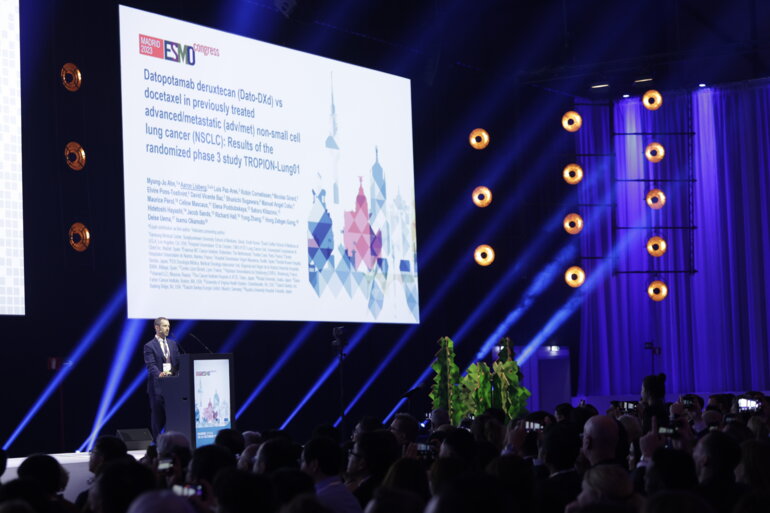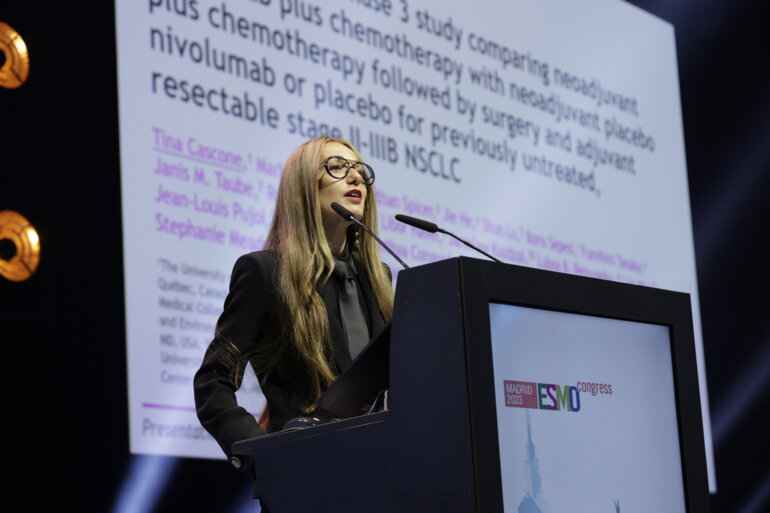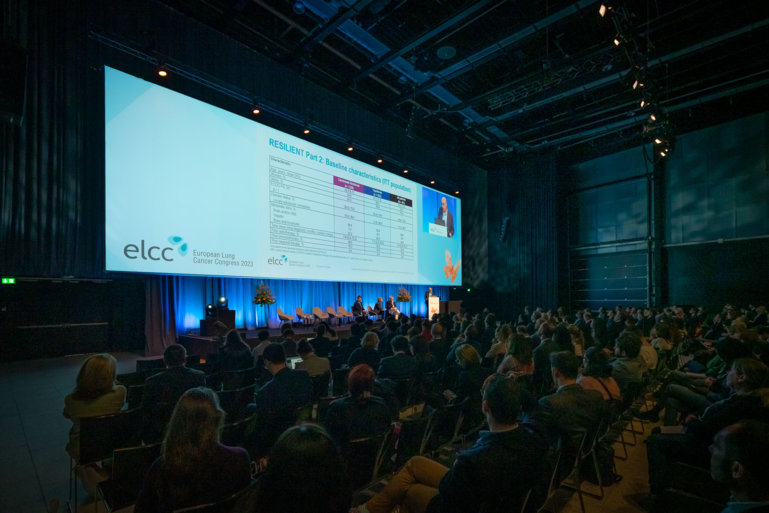
Datopotamab deruxtecan met the PFS endpoint in previously treated NSCLC
The TROP2-directed ADC improved PFS with reduced toxicity compared with chemotherapy in the TROPION-Lung01 trial, but results are not practice-changing

The TROP2-directed ADC improved PFS with reduced toxicity compared with chemotherapy in the TROPION-Lung01 trial, but results are not practice-changing

Alectinib is the first ALK inhibitor to significantly improve DFS in a phase III trial across disease stages

Results from the LIBRETTO-431 trial reinforce the use of selpercatinib as the first-line choice and are likely to widen patient access to treatment

The bispecific EGFR/MET-directed monoclonal antibody looks set to become the standard of care in this setting, but toxicity has to be managed carefully

CheckMate 77T demonstrates significantly improved event-free survival with neoadjuvant nivolumab plus chemotherapy followed by adjuvant nivolumab compared with chemotherapy and adjuvant placebo

Results from studies presented at the ESMO Congress 2023 (Madrid, 20–24 October) outline different strategies involving indirect immune modulation and direct enhanced tumour cytotoxicity to improve on chemotherapy as the current standard of second-line care after ICI progression

The SAPPHIRE trial failed to meet its primary endpoint compared with chemotherapy

Promising data from the ATTLAS phase III study indicate a potential new approach for treating patients progressing on TKIs

Results from the TRACERx study suggest a potential role of CHIP as a prognostic biomarker, but further research is needed

Extended analyses from two regulatory phase III trials show that the benefits of anti-PD-1-based therapy persist long term, even in patients with brain metastases
This site uses cookies. Some of these cookies are essential, while others help us improve your experience by providing insights into how the site is being used.
For more detailed information on the cookies we use, please check our Privacy Policy.
Necessary cookies enable core functionality. The website cannot function properly without these cookies, and you can only disable them by changing your browser preferences.